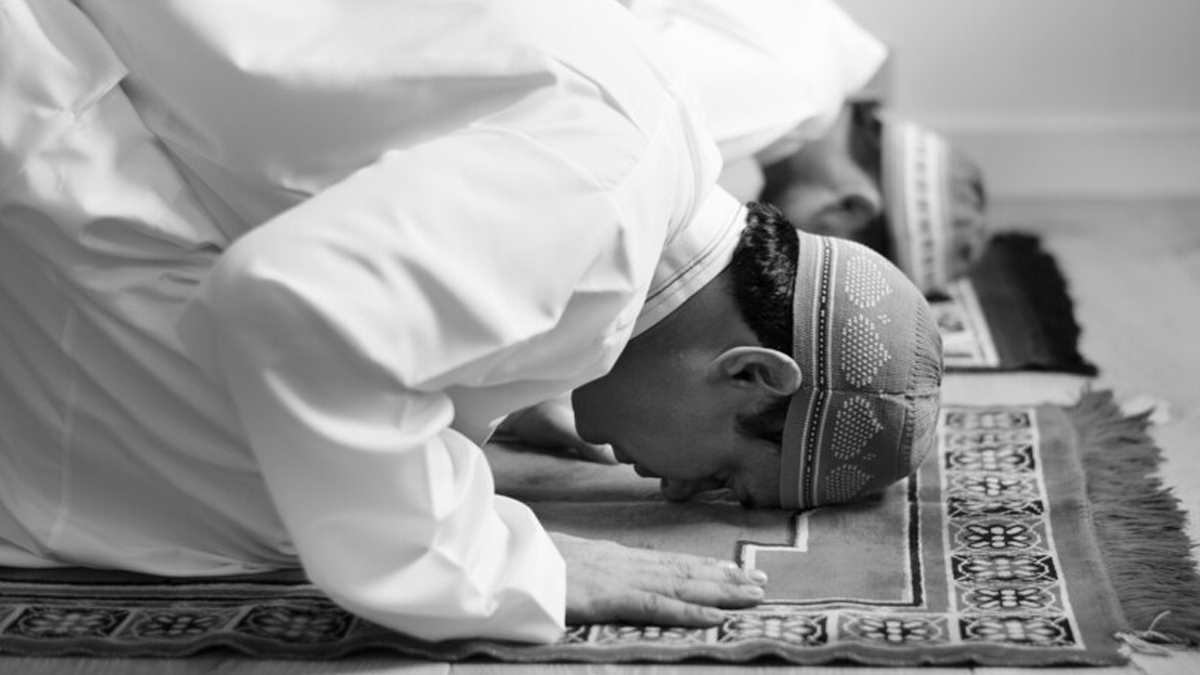
The annual Hajj pilgrimage, a global gathering attracting over 1.8 million participants last year, is expected to take place in Saudi Arabia from 14 to 19 June 2024. Due to the large scale of the event and the brutal weather conditions in Saudi Arabia, it is important for pilgrims to focus on preventive measures that can help them enjoy Hajj and take care of their health at this time.
Table of Content:-
Talking to the team of Onlymyhealth, Dr Nosa Aihie, Regional Medical Director, Middle East, International SOS and Gulnaz Ukassova, Security Director, International SOS, Dubai shared comprehensive guidelines that can help pilgrims ensure their health, security and wellbeing.
Health Tips To Consider During Hajj
Ukassova stressed the need for thorough pre-travel preparation and compliance with government directives, stating, “It is vital for pilgrims undertaking Hajj to thoroughly understand and comply with the relevant Hajj regulations prior to, and during, the pilgrimage.”

Gulnaz added, “Pilgrims should expect large crowds at religious sites, particularly on the Jamaarat Bridge in Mina and around Al-Masjid Al-Haram Mosque in Mecca.” She listed a few ways to remain safe during crowd surges during Hajj:
- Stay alert to your surroundings
- Adhere to designated lanes
- Avoiding walking against the direction of traffic
- Knowing the nearest emergency exits and evacuation routes.
Get Vaccinated Before Visiting Saudi Arabia
“It is important for pilgrims to adhere to vaccination requirements listed by the government of Saudi Arabia to protect themselves and their peers from various infectious diseases. This includes the required vaccination against meningitis administered no more than three years and at least ten days prior to the planned arrival in Saudi Arabia. In line with this, pilgrims are advised to carry valid health certificates stating they are free from any acute, chronic or infectious diseases,” said Dr Aihie.
Furthermore, we suggest scheduling activities to avoid peak heat hours whenever possible and being adequately hydrated during Hajj, as pilgrims may experience heat-related illnesses and dehydration.”
Health And Safety Guidelines For Hajj Pilgrims
The experts shared a few health and safety guidelines that should be in your back pocket and at the top of your mind while going for Hajj in Saudi Arabia:
Also Read: Amarnath Yatra 2019: Breathless Pilgrims Provided Oxygen. Here’s How to Keep Fit in Higher Altitudes

Obtain Vaccinations and Health Certification
All pilgrims are required to have proof of meningococcal disease vaccination. According to the Centres for Disease Control and Prevention meningococcal disease have a case fatality of 10-15% and the last outbreak in Saudi Arabia happened during Hajj in 2000-2001.
Additionally, ensure all routine vaccinations, including COVID-19 and seasonal influenza are up to date. Depending on your country of origin, you may be required to show proof of polio and yellow fever vaccination.
Registration on the ‘Sehaty’ app is mandatory to verify vaccination status and facilitate entry into the country for all pilgrims.
Comply With Safety Regulations
Always follow guidance provided by licensed Hajj operators for a safe and organised pilgrimage. Make sure that you adhere to designated time slots allocated by authorities to help minimise overcrowding risks.
According to a study prepared for the International Development Research Centre, overcrowding can exacerbate susceptibility to disease, the severity of diseases, the spreading of illness, and the mortality due to a disease.
Educate Yourself About Health Risk Of Extreme Temperatures
To mitigate the effects of potentially extreme temperatures, pilgrims should prioritise staying hydrated. Choosing lightweight and light-coloured clothing helps regulate body temperature and reduces heat stress.
Ensure Crowd And Emergency Preparedness
Educate yourself about crowd management guides with tips for navigating densely populated areas. Save emergency contact information for police, ambulance services, embassy officials and local contacts on your mobile phones in case immediate assistance is needed.
Embarking on the Hajj pilgrimage is a deeply spiritual journey that requires careful planning and attention to health and safety. By adhering to the vaccination requirements, staying hydrated, and being vigilant in crowded areas, you can ensure a safer and more fulfilling experience. Thorough preparation, awareness of potential health risks, and compliance with safety regulations will help you navigate the challenges of Hajj 2024 and focus on the spiritual significance of this remarkable journey.
Also watch this video
How we keep this article up to date:
We work with experts and keep a close eye on the latest in health and wellness. Whenever there is a new research or helpful information, we update our articles with accurate and useful advice.
Current Version